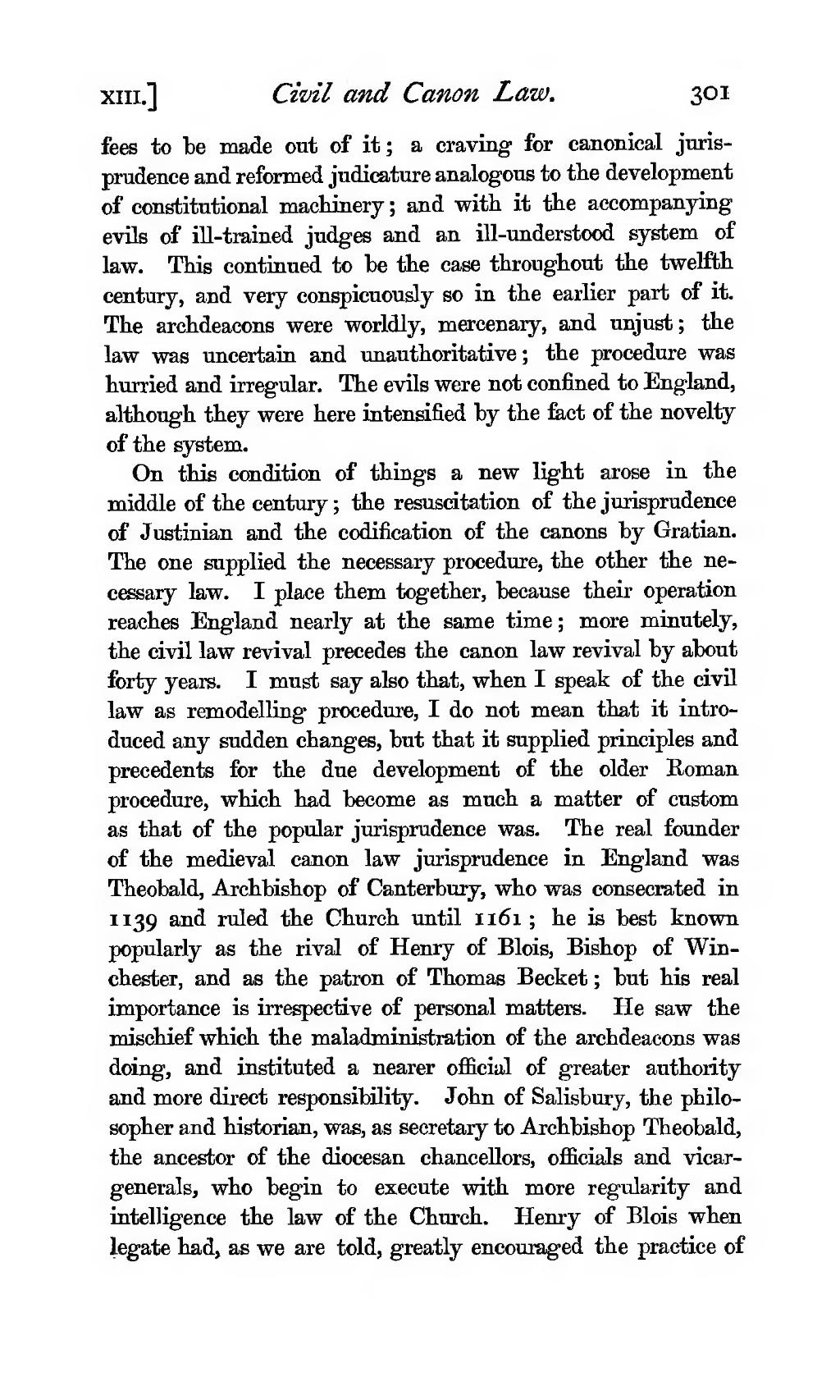fees to be made out of it; a craving for canonical jurisprudence and reformed judicature analogous to the development of constitutional machinery; and with it the accompanying evils of ill-trained judges and an ill-understood system of law. This continued to be the case throughout the twelfth century, and very conspicuously so in the earlier part of it. The archdeacons were worldly, mercenary, and unjust; the law was uncertain and unauthoritative; the procedure was hurried and irregular. The evils were not confined to England, although they were here intensified by the fact of the novelty of the system.
On this condition of things a new light arose in the middle of the century; the resuscitation of the jurisprudence of Justinian and the codification of the canons by Gratian. The one supplied the necessary procedure, the other the necessary law. I place them together, because their operation reaches England nearly at the same time; more minutely, the civil law revival precedes the canon law revival by about forty years. I must say also that, when I speak of the civil law as remodelling procedure, I do not mean that it introduced any sudden changes, but that it supplied principles and precedents for the due development of the older Roman procedure, which had become as much a matter of custom as that of the popular jurisprudence was. The real founder of the medieval canon law jurisprudence in England was Theobald, Archbishop of Canterbury, who was consecrated in 1139 and ruled the Church until 1161; he is best known popularly as the rival of Henry of Blois, Bishop of Winchester, and as the patron of Thomas Becket; but his real importance is irrespective of personal matters. He saw the mischief which the maladministration of the archdeacons was doing, and instituted a nearer official of greater authority and more direct responsibility. John of Salisbury, the philosopher and historian, was, as secretary to Archbishop Theobald, the ancestor of the diocesan chancellors, officials and vicar-generals, who begin to execute with more regularity and intelligence the law of the Church. Henry of Blois when legate had, as we are told, greatly encouraged the practice of
